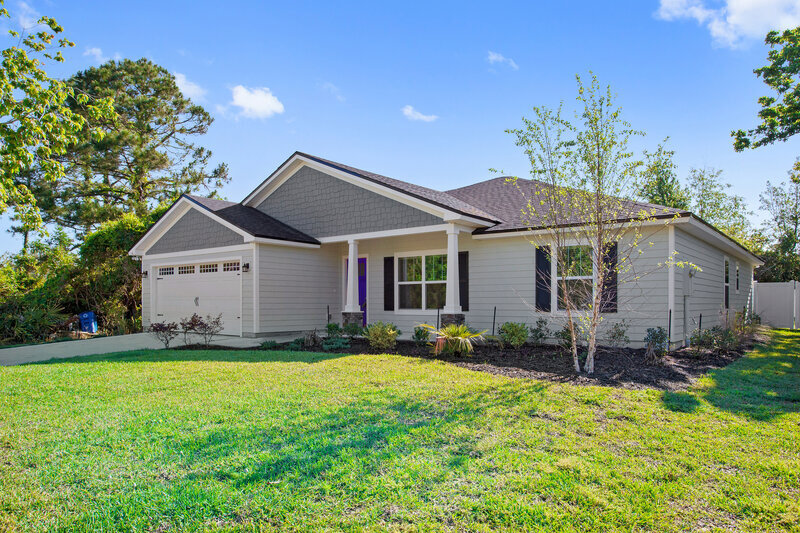Understanding Closing Costs In North Carolina
When buying a home in North Carolina, it’s important to understand who pays what when it comes to closing costs. In general, the buyer is responsible for most of the closing costs associated with their purchase.
This includes fees for title searches, title insurance, appraisal fees, credit report fees, loan origination fees, and survey costs. The seller may also be responsible for some of these expenses such as transfer taxes and prepaid items, such as property taxes or interest due at closing.
It’s important to note that certain credits are available from lenders that can help offset some of these expenses so it’s important to shop around and compare rates. Additionally, closing costs may vary depending on the type of loan being used so it’s wise to understand the various requirements and costs associated with each loan option.
Consulting with a real estate agent familiar with local laws can also provide valuable insight into who is typically responsible for paying which fees at closing.
Table of Contents
1. Understanding Closing Costs In North Carolina
2. A Comprehensive Guide To NC Closing Costs
3. Who Pays For What At The Closing Table?
4. Cash Buyers And Their Unique Closing Cost Arrangements
5. Navigating Homeowner’s Insurance Requirements
6. Faqs About North Carolina’s Unique Real Estate Laws
A Comprehensive Guide To NC Closing Costs

Closing costs in North Carolina real estate transactions can be complicated, with buyers and sellers having potential obligations and responsibilities. Understanding who pays closing costs in North Carolina is important to ensure the transaction runs smoothly and efficiently.
Generally, closing costs will be divided between the buyer and seller. However, there are various circumstances which may dictate otherwise. Buyers typically pay for their loan origination fees, survey fees, title insurance premiums, appraisal fees, and credit report charges.
On the other hand, sellers often pay for transfer taxes and recording fees as well as their own title insurance policy. Additionally, it is important to note that there may be additional expenses such as prorated taxes or HOA dues that could be split between buyer and seller, depending on when they close the deal.
Knowing exactly who pays closing costs in North Carolina before entering into a real estate transaction can help avoid any misunderstandings or disputes down the line. For those looking for a smoother process, remember that we buy houses in Greensboro (and elsewhere in NC), making it easier for you to sell without the usual hassles.
Breaking Down The Components Of Closing Costs
Closing costs are an important part of any real estate transaction in North Carolina. Understanding who pays these fees is essential for anyone buying or selling a home in the state.
Common closing costs include mortgage points, title insurance, home inspection fees, and lender’s origination fee. Knowing which party is responsible for each cost is key to successful negotiations.
The buyer typically pays mortgage points but may be negotiated as part of the purchase agreement. Title insurance protects both parties from unknown liens and encumbrances on the property and is typically paid by the seller.
Home inspection fees are generally paid by the buyer upfront. However, they may also be negotiated depending on the circumstances of the sale. Lastly, the lender’s origination fee covers administrative costs associated with processing a loan and is typically split between buyer and seller.
Understanding who pays what in North Carolina real estate transactions is an important step in any successful negotiation.
Who Pays For What At The Closing Table?
Closing costs are an important part of a North Carolina real estate transaction and understanding who is responsible for paying them can be confusing. Typically, the buyer is responsible for paying certain items such as loan origination fees, title search fees, appraisal fees, and any government transfer taxes.

Closing costs are an important part of a North Carolina real estate transaction and understanding who is responsible for paying them can be confusing. Typically, the buyer is responsible for paying certain items such as loan origination fees, title search fees, appraisal fees, and any government transfer taxes.
The seller may be responsible for their prorated share of taxes, homeowner’s association dues, and other settlement services that the buyer does not typically pay. In some cases, both the buyer and seller may be required to pay certain closing costs such as title insurance or recording fees.
It is important to understand who pays what at the closing table in order to ensure that all necessary costs are covered and accounted for in a timely manner.
Strategies To Reduce Your North Carolina Closing Cost Obligations
When considering buying a home in North Carolina, it is important to be aware of who pays the closing costs associated with the transaction. Fortunately, there are a few strategies you can use to reduce your obligations at closing.
Firstly, buyers should always negotiate with the seller to split the closing costs or if possible have them cover all the fees. Secondly, you can research different lenders and compare rates and closing costs to get the best deal.
Additionally, you may qualify for certain grants and tax credits that could help offset your closing costs. Lastly, consider talking to your real estate agent about any other options that may be available in your particular situation.
Ultimately, understanding who pays for what when it comes to closing on a property in North Carolina can save you money and make the home-buying process smoother overall.
Assessing The Benefits Of Negotiating Your Closing Costs

When considering a real estate transaction in North Carolina, it is important to understand who pays closing costs and the benefits of negotiating these costs. Closing costs are fees incurred during the home buying or selling process that vary from state to state.
They typically include items such as loan origination fees, appraisal fees, inspection fees, title search fees, recording fees, and more. In North Carolina, the buyer pays most of the closing costs as well as prepaid items like taxes and insurance escrow payments.
However, there are circumstances where sellers may pay some of these costs as part of the negotiation process. Knowing this information can be beneficial for buyers since they may be able to negotiate with sellers to cover a portion of their closing costs.
It is also important for both buyers and sellers to be aware of applicable state laws regarding closing cost-sharing agreements so that they can make sure they are abiding by the law when negotiating these terms in their real estate transactions.
Cash Buyers And Their Unique Closing Cost Arrangements
Cash buyers are a unique group when it comes to North Carolina real estate transactions. As they don’t require a loan to purchase the property, they don’t incur the same closing costs as those who need to borrow money from a lender.
However, there are still some costs related to closing the sale that cash buyers must pay. These may include due diligence fees, title insurance, transfer taxes, recording fees, and attorney’s fees.
In addition to these costs, cash buyers may also be responsible for paying any outstanding liens on the property or making repairs prior to closing. Although cash buyers can often negotiate lower prices due to their ability to pay in full at closing, they should be aware of all possible expenses and be prepared to cover them in order to ensure a successful transaction.
Types Of Fees Incurred During The Home Buying Process

When deciding to purchase a home in North Carolina, it is important to understand the fees that could be incurred during the closing process. These costs include attorney fees, title search fees, title insurance premiums, documentation preparation costs, recording fees, survey charges, and transfer taxes.
When deciding to purchase a home in North Carolina, it is important to understand the types of fees that could be incurred during the closing process. These costs can include attorney fees, title search fees, title insurance premiums, documentation preparation costs, recording fees, survey charges, and transfer taxes.
All of these expenses are paid at the time of closing and must be taken into account when calculating the total cost of buying a home. It is also important to understand who is responsible for each fee in order to ensure that all parties involved are adequately prepared for the closing process.
A comprehensive guide to who pays closing costs in North Carolina real estate transactions can help individuals navigate this process and make informed decisions when entering into a real estate transaction.
Addressing Home Appraisal And Home Inspection Fees
When it comes to real estate transactions in North Carolina, closing costs can vary depending on the type of deal involved. Home appraisal and home inspection fees are two significant components of closing costs that buyers and sellers need to consider when making a purchase.
Home inspections are crucial for determining the condition of a property prior to purchase, while an appraisal is used to estimate the current market value of a home. Knowing who pays these costs in advance can help buyers and sellers budget accordingly.
Generally speaking, it is customary for the buyer to cover both the home inspection fee as well as the cost of the appraiser’s services. However, some sellers may choose to pay all or part of these expenses in order to make their property more attractive and competitive in a crowded market.
In any case, buyers should always discuss closing costs in detail with their real estate agent before agreeing so they are aware of their obligations ahead of time.
Navigating Homeowner’s Insurance Requirements
Navigating homeowner’s insurance requirements regarding closing costs in North Carolina real estate transactions can be complex. It is important to understand who pays closing costs to comply with state regulations.
Generally, the buyer will pay for most of the closing costs associated with purchasing a home. However, there are certain instances where the seller may be liable for some or all of the closing costs.
The buyer typically pays title insurance premiums and transfer taxes, while the seller pays for any commissions owed to agents or brokers involved in the transaction. It is also important to note that the lender may require additional fees from either party during this process.
Homeowners should familiarize themselves with state regulations regarding closing costs and take appropriate steps to ensure they know their financial obligations before signing any documents related to closing on a property.
Our Company’s Approach To Helping With Closing Costs

At our company, we understand the importance of closing costs in North Carolina real estate transactions and strive to provide comprehensive approaches to help our clients manage these costs. We know the laws and regulations about who pays closing costs for buyers and sellers.
Our team will review all relevant documents and contracts associated with the transaction, including the purchase agreement, to determine who is responsible for paying the closing costs. We also offer services such as reviewing title insurance policies, researching county records for liens or irregularities, reviewing survey reports, and helping to negotiate escrow instructions between both parties.
Our team is committed to providing a smooth closing process that meets our client’s individual needs while ensuring compliance with all applicable laws and regulations.
Chapter 1: Introduction To NC Closing Costs
Getting a handle on closing costs in North Carolina real estate transactions is an important part of understanding the process. Knowing who pays closing costs can be tricky, but it’s integral to every transaction.
This comprehensive guide will help you understand who pays closing costs, what types of fees to expect, and how much to budget for them. Familiarizing yourself with common closing costs associated with North Carolina real estate transactions is important to make informed decisions about your purchase or sale.
This guide will provide an overview of the most common closing costs and who typically pays them in North Carolina to ensure you are prepared for this critical step in your home purchase or sale.
Chapter 2: Who Pays What In North Carolina?
When it comes to who pays what in North Carolina real estate transactions, a few considerations need to be taken into account. The property buyer typically pays for the mortgage loan origination fees, appraisal costs, title search fees, recording fees, and transfer taxes.
On the other hand, the seller is generally responsible for paying any real estate agent commissions and title insurance premiums. Additionally, either party can be responsible for setting up and administering escrow accounts that cover closing costs such as title insurance policies and underwriting fees.
It’s also important to note that both parties might agree to pay some or all closing costs to make the deal more attractive or affordable. Ultimately, who pays what in North Carolina real estate transactions will depend on various factors, including buyer and seller preferences and local laws and customs.
Chapter 3: How Much Are Typical Nc Closing Costs?
Closing costs in North Carolina real estate transactions can vary depending on various factors, including the type of loan, the size of the down payment, and the number of points being charged. Generally, closing costs can range from 2-5% of the total purchase price.
Common closing costs include title insurance, lender fees, appraisal fees, recording fees, and attorney’s fees. While buyers are typically responsible for paying these costs at closing time, there are some occasions when sellers may contribute to all or part of them.
It is important to understand who pays for what so that you can budget accordingly and ensure that all parties involved are aware of their financial responsibilities in the transaction. Additionally, working with experienced professionals who can help explain all applicable taxes and fees associated with your specific real estate transaction in North Carolina is important.
Chapter 4: Strategies For Reducing Your Financial Burden
Closing costs can be a financial burden when purchasing real estate in North Carolina. Although some of these expenses are unavoidable, there are strategies buyers and sellers can use to reduce their financial burden associated with closing costs.
Before entering into any transaction, buyers should understand the various fees they will be responsible for and negotiate to have the seller pay for some of them. Additionally, buyers may ask their lender to waive certain fees or offer discounts that could result in a lower interest rate.
Buyers should also research government programs that assist with closing costs, such as grants or loan programs. Finally, buyers should consider using a title company that offers lower-cost services and ask if it is possible to increase the down payment amount instead of paying additional closing costs.
By understanding all available options and exploring ways to reduce their financial burden associated with closing costs, buyers can make informed decisions about who ultimately pays for them in North Carolina real estate transactions.
Chapter 5: Understanding Cash Buyer Vs Traditional Buyer Transactions
When deciding between a cash buyer and a traditional buyer for a real estate transaction in North Carolina, it is important to understand the differences and who pays closing costs for each. Cash buyers have the advantage of not needing to apply for financing, which saves time and money.
However, cash buyers generally pay higher closing costs than traditional buyers due to the lack of financing. Traditional buyers are usually required to obtain financing from a lender such as a bank or a mortgage company, which can increase their closing costs but also allow them to negotiate more favorable terms on the purchase agreement.
Cash buyers typically pay all closing costs upfront at the time of closing, while traditional buyers may be able to negotiate seller-paid closing costs or ask for an escrow account to spread out their payments over time. It is important to consider these differences when deciding how you want to proceed with your North Carolina real estate transaction.
Conclusion: Making Sense Of North Carolina’s Real Estate Market
Closing costs are an important factor when buying a home in North Carolina. It is important to understand who pays closing costs and the various fees associated with a real estate transaction.
Generally speaking, the buyer is responsible for paying closing costs; however, there are certain circumstances where the seller may be responsible for some or all of the fees. It is always best to check with your real estate agent when determining who pays what in order to make sure you are making an informed decision.
Understanding North Carolina’s real estate market and who typically pays closing costs can help ensure that you get into a home that fits your budget and financial goals.
Faqs About North Carolina’s Unique Real Estate Laws
Regarding real estate transactions in North Carolina, it’s important to understand the unique laws and regulations that govern them. One of the most common questions asked is who pays closing costs in these transactions. The answer varies depending on the type of transaction and other factors.
Generally, buyers can expect to pay for most closing costs, while sellers often contribute a small amount. In some cases, both parties may split the costs equally or in percentages based on their share of the purchase price.
Other fees, such as inspections, appraisals, attorneys’ fees, title insurance premiums, and transfer taxes, are typically paid by either party at closing. It’s important to review all documents carefully and consult a knowledgeable real estate professional before signing any agreement to know exactly what your obligations are.

